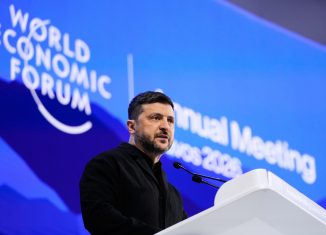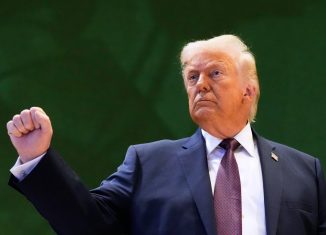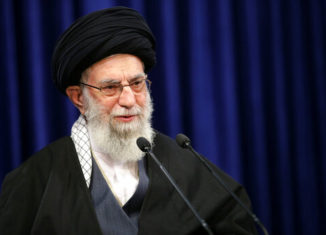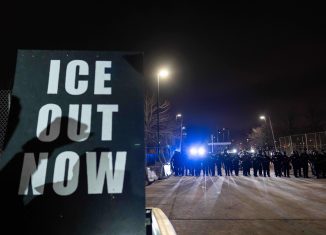
Congressman Tom Graves (R-GA) who is a member of the bipartisan Conference Committee on Border Security joined Brian Kilmeade to discuss yesterday’s closed-door briefing with Customs and Border Protection officials. Graves said after hearing all the facts Democrats and Republicans arrived at different conclusions. When asked about Senator Dick Durbin’s (D-ILL) conclusion after the briefing when he said “Clearly was that the highest number one priority is not a wall, it’s technology.” Graves responded “There was not a number one priority, it was a comprehensive solution set. And it was made clear that not one or — there should be one item or another item, it needed to be multiple items included, had he stayed for the rest of the presentation, he would have probably seen that and heard that.”
Watch the full interview here:
BRIAN KILMEADE, FOX HOST: Yes, that was John Barrasso, Doctor Republican out of Wyoming. He’s on the committee and Tom Graves is on that committee.
He tweeted this out yesterday, “This morning the conference committee on boarder security heard from the experts. We all heard the same facts from the same people. How we could now arrive at different conclusions on the wall is beyond me”.
Congressman Tom Graves, great to see you at the Super Bowl, so are you more optimistic now than you were then?
GRAVES: You know, we had a great meeting yesterday, I got to tell you. It was amazing to visit with the experts, presented the facts and — but we did arrive at different conclusions I believe. So, are we closer? I would like to think so. I hope we are. We should be. We’re further into this discussion, but I still think we have a long way to go.
KILMEADE: Okay, fine. Was part of the presentation yesterday how El Paso benefited from fence and how San Diego benefited from a fence, those numbers don’t lie? I think they shut down traffic by about 90 percent, correct?
GRAVES: Yes, so we received a lot of information about what works and what has worked in addition to what is needed. And with priority listings backed up with data, and amazing information.
In fact, there are just so many different areas where we I guess were presented with different threats that we were previously not aware of, and so, I think after meeting with this group yesterday that the Democrats themselves — accuse me, got a little head cold, but the Democrats themselves surely should see that we have some threats that have to addressed and how they can ignore that fact, ignore the data, ignore the experts is beyond me.
KILMEADE: So, Steve Palazzo, a Republican of Mississippi says, Dems will not give him $5.7 billion, what can they do and what they will they accept is what he wants to know. Henry Cuellar said, they’re still on the president’s message, but he wanted to say, I think there’s a path forward but people need to understand, we’re not going to give him the $5.7 billion. I’m telling you, there’s no way. Why?
GRAVES: Yes, I know. It seems like it’s more personal. It’s less about addressing the needs and the threats and it’s more about trying to deny the president something that he’s requesting on behalf of the country.
I mean, it does baffle me to be honest with you, knowing that we have 40 miles that has just been completed, another 82 that are about to begin and get started off this month themselves and then you have the request of Border Patrol to continue adding to that, and with good reason.
And — but they want to see a comprehensive solution, I must tell you that and that was well understood, I thought, by everybody, is that it should be comprehensive. It should include technology, it should include additional personnel, law enforcement, and, but most necessarily it must include some barriers.
KILMEADE: Barriers, so how do people feel? We heard this thing called the Normandy fence, which is like a bad split rail fence, that would be comical in it’s inadequacy, right?
GRAVES: That is considered a vehicle barrier and there are miles of that currently on the border, but that does not stop pedestrian traffic at all, and they were not requesting that. They were requesting pedestrian barriers, which are identified and currently under construction as steel slats, ballard type fencing, which is a very aggressive barrier. It’s actually steel columns that are hollow that have rebars inside with concrete poured inside the columns themselves. So, it’s a very dynamic fence and barrier, whatever they want to call it, it definitely stops pedestrian traffic.
KILMEADE: I want you to hear what Dick Durbin said, and this plays to what are you listening to guys? Cut 16.
(BEGIN AUDIO CLIP)
SEN. DICK DURBIN (R), ILLINOIS: The thing that I thought came through clearly was that the highest number one priority is not a wall, it’s technology. We have to reach the point where the trucks and cars coming into the United States are scanned to make certain they’re not bringing in narcotics, weapons or people.
(END AUDIO CLIP)
KILMEADE: Right, no one is saying they don’t need that, but to say that we need for the border crossing is not telling the whole story. Can you give us an idea of the presentation that you found most interesting?
GRAVES: Sure. So he — Senator Durbin brings up a point there other than, it was not the number one priority. There was not a number one priority, it was a comprehensive solution set. And it was made clear that not one or — there should be one item or another item, it needed to be multiple items included, had he stayed for the rest of the presentation, he would have probably seen that and heard that.
But he wasn’t there for the entire presentation. Technology was spoken of and at the ports of entries a critical area, but the barriers were proposed as a way to force additional traffic through those ports of entry, because there is such great success there.
So the barriers have a purpose, the ports of entry have a purpose and then without the personnel to support it –
KILMEADE: Right.
GRAVES: — you know, then you’re left not completing the solution set.
KILMEADE: Congressman Tom Graves is on the 17 person committee to find a way forward, the conference committee to present something to the president that he could sign and stop another government shutdown in any way shape or form by February 15th.
Now, Congressman, what are – what’s the schedule for the committee now?
GRAVES: Well I wish I could tell you there was one, I’ve been asking for additional meetings, we have not had those, and thankfully Senator Shelby’s the one who requested the meeting that we had yesterday.
We’re not getting any meeting notices from the Democrats. And I – and I should point out to your listeners that it is Nancy Pelosi that controls the committee, she created the committee, she has more votes than anyone on the committee, her chairperson of the appropriations committee chairs the committee and – and sets up the meeting times and the agenda.
So quite frankly it’s up to them, and I’m not sure that they’re operating in good faith at this point. I’d like to think they are, but we should be having additional meetings and arriving at a conclusion.
KILMEADE: Yes, I hope so. Why is it that she would have control of that meeting? She runs the House but not Congress.
GRAVES: Well she – the conference committee was created and voted on by the House, and of course the Senate has members as well that are appointed by Mitch McConnell and Chuck Schumer.
But she has more votes than anyone on the committee and her chair is chair of the committee this – this cycle.
KILMEADE: So Nita Lowey indicated last week – yesterday that you know what, we’re making progress, we might need a one week funding to get all the details on this. What would she need the extra week for?
GRAVES: That’s a good point, we don’t really need an extra week. You know, we were in that 35 day government shutdown, Nancy Pelosi said open the government, we’ll negotiate, they had five, six weeks to have a plan and proposal in place for when things did open back up.
The president said OK, deal, I’ll open it back up. Let’s talk. And since then they’ve done nothing but produce a proposal that provided zero money for additional fencing or a wall or barrier, no new border patrol agents, and – and also phasing out the detention – the family detention centers, which is remarkable that they would even contemplate that.
KILMEADE: Why would they want to do that?
GRAVES: And to phase them out not over a long period of time, but within the next seven months. So I’m not really sure what their motive is, it’s almost as if their proposal assumes there is not a crisis or a problem whatsoever.
KILMEADE: But I – see I don’t understand that, I could see expanding them, because that’s going to be the need. The other thing I heard is they’re trying to starve out ICE and start funding the deportation force.
GRAVES: You know, you’re absolutely right. I believe it’s about a 81 percent cut in what the president had requested and what border patrol had requested along with other law enforcement as it relates to investigators.
So it’s an amazing proposal that they put together that, to me, is not in good faith at all and it doesn’t address the problems that we’re faced with.
KILMEADE: So Mick Mulvaney was on with Sean Hannity last night and said this about what the president will do, cut 11 (ph).
(BEGIN AUDIO CLIP)
MICK MULVANEY, DIRECTOR, OFFICE OF MANAGEMENT AND BUDGET: He said it very clearly last night he’s going to get it done, in fact I think he took it – put his hand up to take that oath, that he was going to get it done.
And he is, we would love to work with Congress to do that, that’s the right way to do it, it’s the easiest way to do it, it’s the fastest way to do it. But if Congress won’t participate or won’t go along, we’ll figure out a way to do it with executive authority, with – and let’s be clear about this, legal executive authority.
This is not a circumstance of the president overstepping his bounds.
(END AUDIO CLIP)
So I heard they found money, unspent money to the tune of $7 billion that they would – they would do it in a way that would be the least vulnerable to any type of legal challenge. Could you tell us about what the president might be up to here?
GRAVES: I think Mick did a great job last night. That was a really well done and informative there (ph).
KILMEADE: He’s great. He’s very confident.
GRAVES: Yea and what he was pointing out is they have contingency plans in place. They respect the process. They want to see if we can come together and reach a conclusion, but if not they have a responsibility and that’s to protect our country and they’re prepared to do that.
KILMEADE: All right. Congressman, Tom Graves out of Georgia, Republican thanks so much. Good luck. Make sure they have some meetings – at least fight it out.
GRAVES: You got it. Thank you so much.
KILMEADE: All right.







